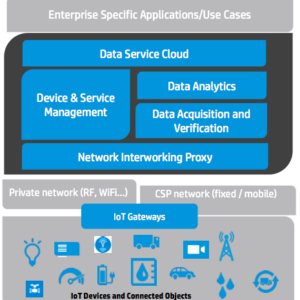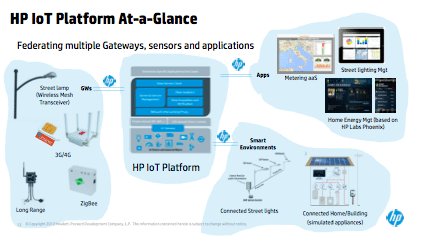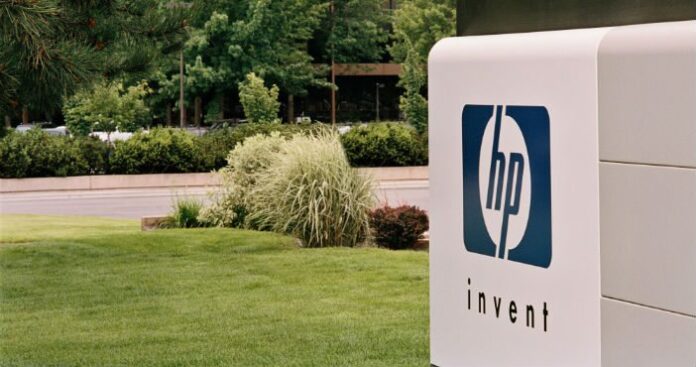Hewlett-Packard today announced its “Internet of Things” platform, which will enable network operators to manage IoT sensors. This solution will provide vertical applications on M2M devices, have the ability to analyze the collected data regarding the performance of these applications via a secure cloud infrastructure and enable more opportunities for monetization of services in the area of IoT.
Network operators continue to look for new ways to monetize their telecommunications infrastructure assets. We’ve all seen the revenue associated with IoT projected to be in the billions by 2020. So where do all of these additional service revenues come from? “Things.” To realize this vision, the things cannot stand alone. They need to have connectivity, management and security, and they needsto come from a trusted source. The ability to offer a smart ecosystem is the first step to realizing the IoT vision.
 The HP IoT platform is composed of six elements to support the operators’ needs in deploying end-to-end IoT services. Although some of the elements relied upon already exist in the HP portfolio, there were two new elements included in the announcement: the data service cloud and the network interworking proxy. End-to-end security underlies the solution and is scalable to millions of devices at a carrier-class level of reliability allowing remote management of millions of devices.
The HP IoT platform is composed of six elements to support the operators’ needs in deploying end-to-end IoT services. Although some of the elements relied upon already exist in the HP portfolio, there were two new elements included in the announcement: the data service cloud and the network interworking proxy. End-to-end security underlies the solution and is scalable to millions of devices at a carrier-class level of reliability allowing remote management of millions of devices.
In order to help increase the ease of deployment, HP is creating target applications focused on key industry sectors such as energy, manufacturing, municipalities and consumer devices, with energy management being the initial target. The utility energy management pack is aimed at both network operators and utility providers, and the concept provides secure home automation and energy controls to consumers, industries and municipalities. 
Some examples of functionality that could be included are:
- Smart meters to manage pre-paid energy, dynamic tariff updates and real-time consumption measurement.
- The ability to monitor and optimize energy consumption of connected appliances within the home based on usage parameters.
- The ability to remotely manage public lighting based on weather, location or emergency scenarios.
- Smart city services that could include parking options that track capacity and payments.
The virtualized platform can be offered to network operators through either a licensing structure or as a managed service. The managed solution can reside in either the operator’s cloud or HP’s. Data analytics across the range of machines being managed are also provided to ensure appropriate network performance. All customer data is secure and only shared via customer opt-ins.
For IoT to achieve the goals the industry hopes for, there must be players – such as network operators – that offer an umbrella service. There are too many moving parts in these deployments and the need for secure, reliable connectivity from a single source and overall performance management can only be met by organizations such as network operators. At least for today, this is the situation. Expecting the individual consumers or enterprises to work through all of these details will leave IoT being embraced outside of industrial applications long into the future.
Like what you read? Follow me on twitter!
Claudia Bacco, Managing Director – EMEA for RCR Wireless News, has spent her entire career in telecom, IT and security. Having experience as an operator, software and hardware vendor and as a well-known industry analyst, she has many opinions on the market. She’ll be sharing those opinions along with ongoing trend analysis for RCR Wireless News.

